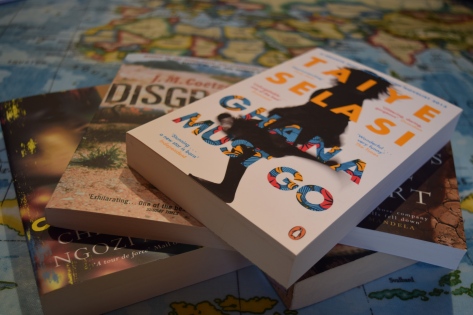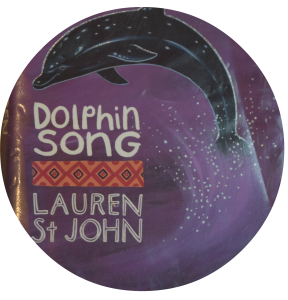It’s strange when something so awful as the Biafran war happened and you don’t really know anything about it. Especially when you’ve actually lived in Nigeria, as I did when I was a child. We weren’t there long – around 5 months, in 1980 – but it was enough to understand a little bit about that huge, and hugely complicated, country. A little bit, but evidently not enough – as I really didn’t know much about Biafra.
To be fair, I was very young when we were there – 11 or 12. And what child of this age really does know about war? Except all primary aged children do learn about some wars, like World War 1 and World War 2.
So hurrah for fiction, which can open our eyes to parts of history that otherwise would totally pass us by. I have always found it easier to understand the factual side of historical events if I have first read some fiction around it. It’s easier to follow the “dry” stuff if you have some context to set it in, if you get to know some characters who were involved (even fictional characters). So, as I read my way through Half of a Yellow Sun by Chimamanda Ngozi Adichie, I constantly found myself turning to Wikipedia or other websites to find out more about what happened in that internal conflict, aided by outside forces, back in the 1960’s. I think it’s the sign of a good book when you want to know more about the era and the story that surrounds it.
And Half of a Yellow Sun certainly is a good book. It has it all, interesting characters: a fascinating backdrop, tension between family, romance, disloyalty, the turmoil of war. The book follows three main characters – Olanna, whose wealthy Igbo family enjoys a life open to few others in Nigeria; Richard, the British boyfriend of Olanna’s twin sister; and young houseboy Ugwu – through the lead-up and the duration of the Biafra war, watching as they interact with each other and others around them, all trying to find their places in the new world order.
To me the most fascinating character was Ugwu, who basically seems to slave for the wealthy, intellectual copy he lives with (there is no mention of him ever getting paid or having regular days off). He is portrayed at first as a simple sort, who learns to read from the Professor and then starts to soak up information. As events unfold, he goes where he is told, does what he is told and doesn’t seem to question his place in life. But gradually the lives of those around him, who have previously been more privileged than he, change – they are brought down to his “level” and eventually, through the awful starvation of that period, they are equals. And at the end, we realise that he is the one whose life has probably been affected the most by the events portrayed in the novel – it turns out that the book we assume all along has been written after the end of the war by the British character, Richard, is in fact a work by Ugwu. Out of the chaos of the horrendous events, there is some good – I imagine Ugwu rising above his place in life and finding a job as a professor or teacher, following in the footsteps of his “master”, professor Odenigbu.
As for the other characters, it’s hard to really warm to any of them. The twin sisters central to the storyline (Olanna and Kainene) come from a privileged background and so we learn of what the war is like for those Nigerians who have previously “had it all”. Kainene’s boyfriend is Richard, a Brit who decides he is an honorary Biafran and determinedly stays put through all the horror, even though he is helpless to stop events unfolding around him. One of the more harrowing scenes in the book involves a stop-over at an airport, where a man he was previously chatting to is massacred for being from the wrong tribe. The blind loyalty all these characters show to the “cause” is astonishing – the futility of what happened in Biafra is clear to us now, but we see events through the eyes of the characters, apparently believing they will win the war right up until the bitter end.
The book touches on other subjects, like child soldiers, rape, colonialism. But all of this is just a backdrop really to the main events – the interplay between the characters and the way all of them react to what is happening around them. It’s not an easy subject matter but it is one that is obviously very important to the author, whose own family were caught up in the war. I certainly felt like I learned a lot, but at the same time I felt entertained. I’m looking forward to reading this author again, and already have a copy of Americanah ready on stand-by.
Read my other Africa Reading Challenge reviews – Dolphin Song and Disgrace.


